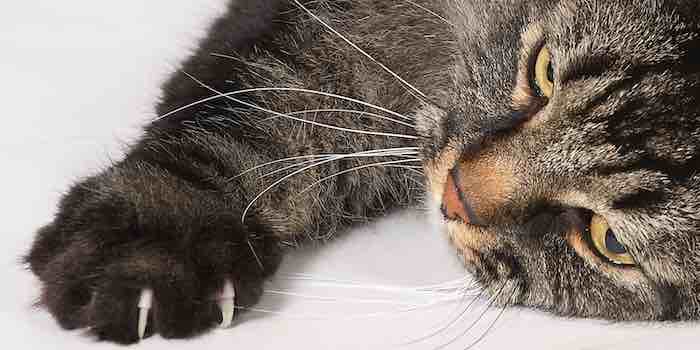By W. Gifford-Jones, MD and Diana Gifford-Jones ——Bio and Archives--June 10, 2023
Health and Medicine | CFP Comments | Reader Friendly | Subscribe | Email Us

Dog lovers may want to skip this week’s commentary. For cat lovers too, this column may prove a disappointment. A health risk assessment of household cats might be all you need to recommit to a dog.
Cats are the darlings of the Internet. And that may be the safest way to enjoy them.
There can be no doubt that cats provide crucial companionship for many people. Their entertainment powers rival dogs. But here are a few thoughts on the ways cats can have an impact on human health.
First, the killer instinct of cats has a startling effect on biodiversity. About a decade ago, the journal Nature published a study that estimated domestic cats kill 1.3–4.0 billion birds and 6.3–22.3 billion mammals annually! More recently, in Australia, a study found that the hunting success of feral cats, especially in areas affected by wildfires, has contributed to the collapse in population of small mammal species.
While charming household cats may not be successful in killing larger prey, that doesn’t stop them from trying. It’s amazing to learn that nearly half of house cats have physically attacked their owners!
What are some of the other perils of living with cats? Numerous diseases can be transmitted by cats, including bacterial infections. The cats usually become infected by eating contaminated raw meat. Humans touching these cats, their food, toys or bedding – and especially in handling cat poop – neglect to wash their hands. Salmonella can be caught this way.
Other bacterial infections can be caused by flea bites or fights with other infected cats. Cat scratch disease, for example, can be transmitted to humans by the lick of a cat. It’s normally not serious, but infection can lead to fever, eye infection, and more severe symptoms in children and people with weakened immune systems.
Hookworms are another concern. These tiny worms are found in cat feces and in the soil and sand used by infected cats. Humans walking barefoot in contaminated areas can pick up the worms. The larvae penetrate the skin causing red, raised tracks that are very itchy. Fortunately, the worms can’t survive in their human host, so the problem goes away without treatment within a few weeks most of the time.
Ringworm is an infection caused by fungus spread by touching an infected animal. Roundworm is a parasitic disease transmitted by swallowing the eggs, something children can easily do when playing in sandboxes and then not washing their hands.
Thanks to laws requiring vaccination, rabies in cats is rare. But watch out for feral cats that may have come in contact with infected wildlife.
Toxoplasmosis may be the greatest concern. It’s caused by a parasite found in soil, water, meat, or poop from an infected cat. Most commonly, people become infected when they do not wash their hands after cleaning a cat’s litterbox. There can be serious health consequences for people with weakened immune systems, including neurological disease. Pregnant women need to stay away from the litterbox and any other areas exposed to cat poop due to the risk of birth defects associated with toxoplasmosis.
With such a disparaging commentary on cats, we are certain to receive a ton of reader mail reminding us about dog attacks, dog-borne diseases, and other dog drama. But long-time readers will know that for us, there is no contest.
Sign-up at www.docgiff.com to receive our weekly e-newsletter. For comments, contact-us@docgiff.com. Follow us on Instagram @docgiff and @diana_gifford_jones
View Comments
W. Gifford-Jones, MD is the pen name of Dr. Ken Walker, graduate of Harvard Medical School. Diana Gifford-Jones is his daughter, a graduate of Harvard Kennedy School. Their latest book, “No Nonsense Health” is available at: Docgiff.com
Sign-up at DocGiff to receive our weekly e-newsletter. For comments, .(JavaScript must be enabled to view this email address). Follow our new Instagram accounts, @docgiff and @diana_gifford_jones
.